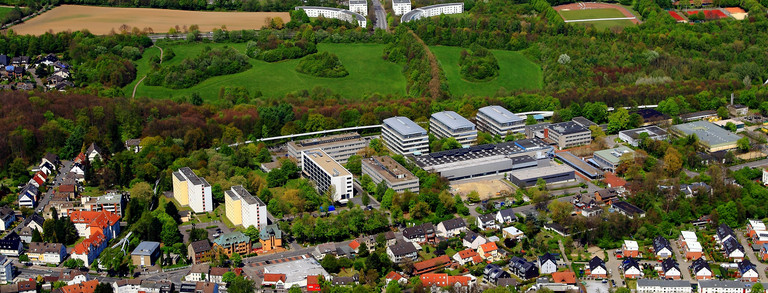DEKLIWA (2015 - 2018)
Influence of demographic change on the sensitivity of cities to climate change.
Scientific discourses in the research fields of demographic change, climate change, and adaptive planning have developed separately. Existing cross-references are largely ignored. Given obvious connections and relevance to current and future urban and regional development, the lack of linkage raises questions and highlights the need for basic research in spatial science.
Demographic change and climate change
The two megatrends of demographic change and climate change interact in that risks in the context of climate change do not result from physical changes in the climate alone, but only from their interaction with social development processes. Both trends are characterized by their long-term nature and growing importance, and by their low predictability, especially at smaller scales. Work on dealing with demographic change in cities is based on national population and household projections, which assume a number of different premises depending on the origin and target horizon of the forecast, but in no known case take into account the medium- and long-term consequences of climate change. In addition, the numerous publications on climate impacts and climate adaptation indicate that there is as yet neither a unified concept nor a unified set of terms for vulnerability assessment in spatial planning.
The research project presented here provides valuable insights into how the vulnerability of different urban structure types to climate change can be improved and how this knowledge can find its way into spatial planning in the context of planning. For this purpose, the climate change region types of the BMVBS and the demography types of the Bertelsmann Foundation are used.
Aim of the project
The project focuses on the analysis of the influence of demographic change (demographic aging, population decrease or increase, heterogenization of the population) on the sensitivity of cities to the consequences of climate change.
What influence do specific urban climatic or urban structural factors have on the effects of climate change?
How does demographic change alter the importance of sensitivity relative to the importance of the climate signal over time and relative to different city types?
What challenges does this pose for adaptive planning for different city types?
Work Program
To answer these questions, an integrated methodology for assessing the impacts of the two megatrends of climate change and demographic change will be developed to serve as an evidence base for spatial planning adaptation strategies under uncertainty. At the same time, methodological weaknesses of previous approaches are to be overcome, which assume that society remains the same in its structure and sensitivity while the climate changes.
The methodology will be applied in six case studies covering a wide range of projected climatic and demographic changes, with corresponding differences in affectedness and institutional capacity.
Contact: Prof. Dr. habil. Thorsten Wiechmann
Project duration: 02/2015 - 01/2018



